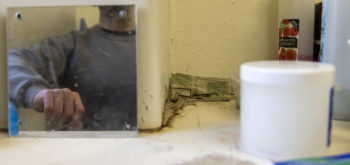Seventeen years into a life sentence, former nurse Colin Norris will have his conviction re-examined by the Court of Appeal in a hearing beginning today – four years after his case being referred by the Criminal Cases Review Commission (CCRC).
Norris, who worked at Leeds General Infirmary, was convicted in 2008 of murdering four elderly women and attempting to murder a fifth by injecting them with insulin—allegedly causing fatal hypoglycaemia in patients not diagnosed with diabetes. At trial, the prosecution argued that such deaths were ‘vanishingly rare’ and secured the support of expert medical testimony. The jury agreed, and Norris was handed a life sentence, during which the judge described him as ‘an arrogant and manipulative man with a real dislike of elderly patients’—a phrase that has been widely repeated by the media. He was branded ‘The Angel of Death’.
- You can read Paul May in Science Fact and Science Fiction: the case of Colin Norris on the Justice Gap
That narrative will now come under scrutiny. Norris’s appeal rests on three strands of fresh evidence:
- New medical evaluations suggesting that four of the five women who died likely did so from natural causes.
- Updated scientific research showing that the type of hypoglycaemia observed is far more common among frail elderly patients than was previously understood.
- Serious questions about access and opportunity, with evidence that at least 15 other staff members could have administered the injection to the fifth patient. No direct evidence has ever tied Norris to her death.
The murder investigation was carried out by West Yorkshire Police shortly after the Harold Shipman inquiry, in which a neighbouring force was criticised for not acting decisively enough. Trust in healthcare professionals had been severely shaken and campaigners believe this context may have influenced assumptions made by the police, which they claim focused too narrowly on Norris.
Paul May, chair of the support group for Colin Norris, criticised the police investigation as ‘conclusion-driven’, stating, ‘If the trial jury had known the facts as they now stand, it’s inconceivable a guilty verdict would have been returned.’ May ran campaigns for the Birmingham Six, Judith Ward, East Ham Two, Bridgewater Four and Sam Hallam. He has written, an 80-page booklet on the case – read it here.
May also says that the adversarial nature of our justice system ‘provides an ineffective forum for testing complex medico-scientific evidence’. ‘In 2013, the Law Commission proposed pre-trial hearings be established to assess the reliability of expert evidence,’ he writes. ‘Had such a system been in place in 2008, the paucity of research into non-diabetic hypoglycaemia would have been apparent. The proposal was supported on all sides of the criminal justice system including prosecution and defence lawyers. The then Secretary of State for Justice (Christopher Grayling) peremptorily dismissed the proposal on the spurious ground that it would cost too much.’
Breda May, a fellow campaigner and daughter of Birmingham Six member Billy Power, drew a parallel between her father’s case and Norris’s, ‘Like Colin, he suffered decades of wrongful imprisonment, caused in part by unreliable scientific evidence.’
Norris’s time in prison might have been significantly shortened were it not for delays by the CCRC. The commission first received submissions regarding his case in 2011. It rejected appeals twice—on grounds later successfully challenged by his legal team at Birnberg Pierce Solicitors—before finally referring the case to the Court of Appeal over a decade later. In the meantime, Norris remained in maximum-security detention, where he is still held. Paul May describes progress with the watchdog as ‘glacial’.
In a 2013 interview with the Mail on Sunday, Norris said: ‘I am not the Angel of Death. I am an ordinary man trapped in a living nightmare. I never killed anyone.’
Colin Norris will be represented by Michael Mansfield KC and Nicholas Brown of Doughty Street Chambers at his appeal.







